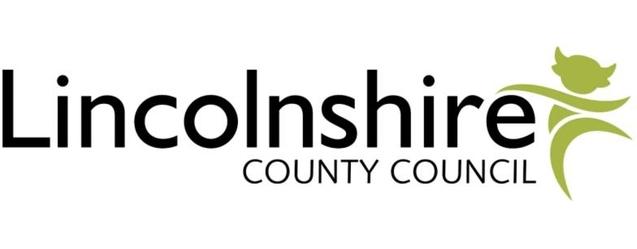Lincolnshire County Council’s (LCC) adult social care service is rolling out major changes to its case recording system, Mosaic. These changes are about enabling practitioners to both tell the story of the person they are working with and work in a more strengths-based way.
Simon Garner, workforce quality and development practitioner, explains the aims of the changes: “What we’ve done is focus on several key aims during this piece of work. We wanted to have a ‘blank page’ ethos in mind so colleagues can paint a picture of the person they work with.

Photo: LCC/ The Council is working to reduce bureaucracy
“People don’t fit in text boxes and drop-down options so it’s vital that our forms enable colleagues to capture our conversations and paint pictures of who people are, what is important to them and what their outcomes are.”
Simon explains some of the other aims. “We also want to free up our colleagues’ time so they can spend more of that time having meaningful conversations with people, rather than completing paperwork.
“We know from our co-production work with people who use our services that long and overly complex assessments are not accessible to them. To that end, our assessments have been reduced from 35 pages to six.
“If the people we work with can see the conversation we have had, recognise that we have captured what is important to them, and what will happen next, they are much more likely to be engaged as active partners in their journey.”
The reduction in the length of the assessment form has been achieved in two ways. Firstly, the ‘blank page’ ethos allows staff to record free text. This means they can record proportionately and capture what is important to a particular individual, rather than filling in boxes for the sake of it. The second change has been to remove data capturing and performance indicators from a person’s assessment. This data is still captured elsewhere, but this change means LCC’s assessments are more concise and meaningful to anyone reading them.
Revamped recording system
The revamp is the biggest change to LCC’s recording system since it was introduced in 2016. Plans to improve the system started in 2019 with the development of LCC’s strategic vision for adult social care, which aims to ensure that “people stay as healthy, safe and independent as possible during all stages of their life”.
Prior to the changes, LCC undertook peer reviews and staff engagement, and looked at the customer journey, to understand how well the process flowed for people who used services and how that journey could be improved.
Practitioners and people who used services were consulted to identify areas of improvement. Practitioners said that they wanted to continue to improve their strengths-based practice skills, and people who used the services said they found some print-out versions of their assessment forms were long-winded, fragmented and inaccessible.

Photo: LCC/ Helping practitioners to both tell the story of the person they are working with
Another big change for LCC has been a move away from their current RAS (resource allocation system) to a ready reckoner model, when practitioners calculate planning personal budgets for people based on their needs. This model is still a form of RAS, but it is much simpler to use for staff and allows practitioners to use their professional judgment when calculating planning budgets. It also ensures planning budgets are Care Act compliant in terms of transparency and sufficiency, says Simon.
“It was important that we reviewed our workflows and process,” says Simon. “We wanted to embed the systems that support the new forms so practitioners can exercise their professional autonomy when working with people. This ultimately results in better outcomes and more strengths-based working.”
Practice lead Rebecca Alton, who is part of the change implementation team, highlights this by giving an example of how she used the new forms when working with a person with dementia she was supporting.
When it came to this person’s plan, Rebecca was able to record his story in a much more proportionate and meaningful way.
“He said that being in control was important to him,” says Rebecca. “His real fear was that, because he’d developed dementia and he’d watched his wife’s deterioration from the same disease, he was going to lose control over his life. So, writing the plan in the way he wanted was important.”
Simon endorses this by adding: “If the individual feels that you’ve listened and captured their story, and they can see this in the documents we send out to them, they are more likely to be engaged. It’s about building a relationship and moving forward as a partnership.”
Lead professional Mary Nel, who has been leading these major changes, says: “The involvement and commitment from my team, Mosaic system colleagues, frontline staff, people with lived experience, senior leaders and internal stakeholders has been key to successes so far and will be critical as we go forward.”
Mary explains that these changes are very much an ongoing commitment from LCC to improve practice, case recording and outcomes for people, driven by the front line through continuous development and innovation. LCC has a keen focus on continuous improvement, and she is excited to see the impact of these significant changes on practice and the people the council works with.
Practitioners’ feedback
So far, the feedback from practitioners has been very positive. Even at these early stages practitioners are feeling the changes will enable them to get back to the kind of social work that drew them into the field in the first place.
“It has been a long time coming but a big thanks to all of you for your hard work in developing this and involving and listening to practitioners,” she says.
“I feel this is a really good step forward, not to be restrained by tick boxes and support to be relevant to the person. I think this is a really good thing.
“I am looking forward to using the new forms and spending more time doing social work.”
In the coming months, LCC will be reviewing the changes to measure the impact on people’s journeys and outcomes. It will also be continuing to engage with practitioners and people who use services to fully understand the benefits and continue to gain insight for future developments.
Are you interested in a career at Lincolnshire County Council? Check out the latest vacancies here. And read more about working at Lincolnshire here.




 Facebook
Facebook X
X LinkedIn
LinkedIn Instagram
Instagram